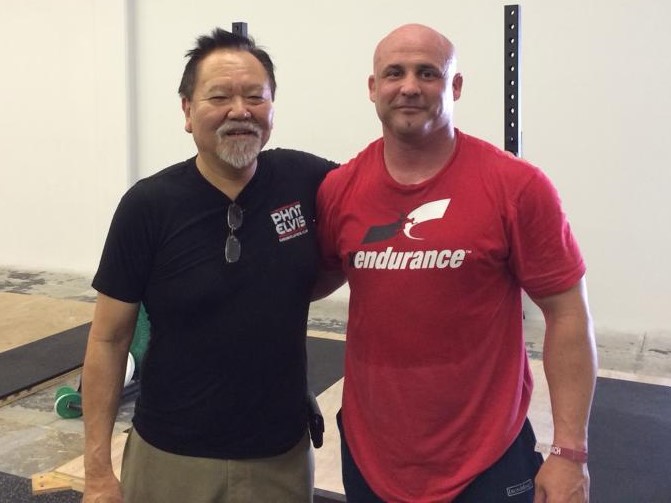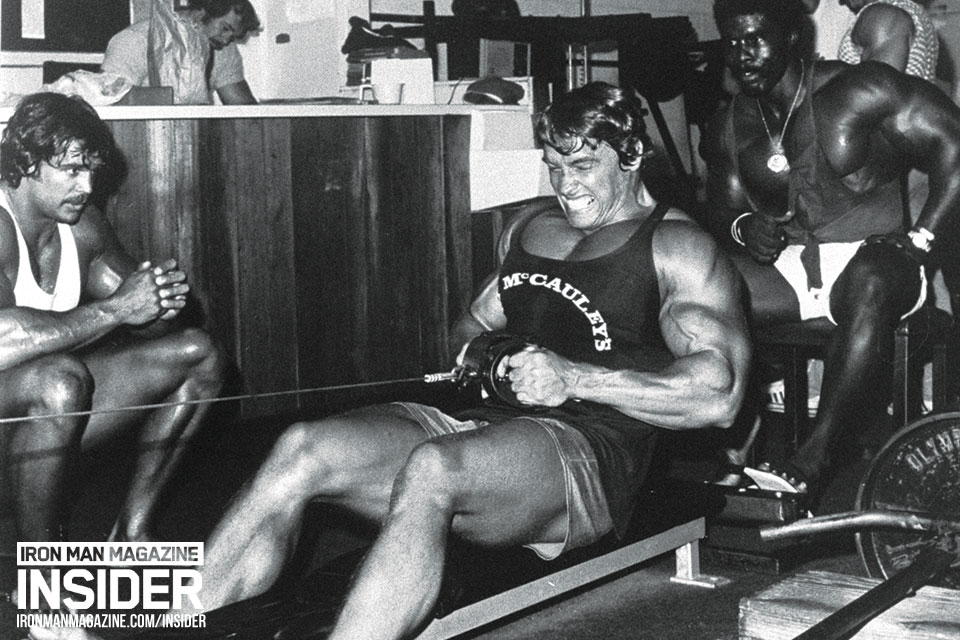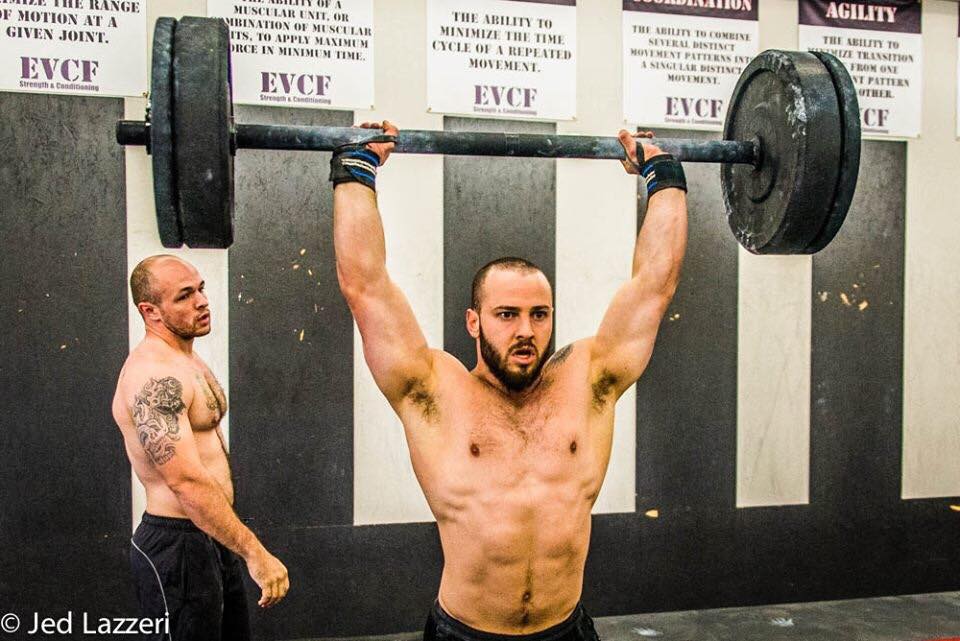The functional fitness movement was to some degree a backlash against the commercialization of fitness.…

Who Coaches the Coaches: An Interview with Bob Tanko
Despite the ire that CrossFit has drawn from some corners, even its most adamant critics agree: CrossFit has brought much-needed attention to serious strength training. It has entirely changed the demographics of weightlifting and powerlifting trainees. It has revitalized formerly overlooked sports with the public’s attention. While the new development of weekend seminars and certifications provides some preliminary education for new coaches, I find myself wondering more about where committed coaches and athletes can go to hone their craft—beyond a 48-hour whirlwind of information. In this interview, USA Weightlifting Hall of Fame Coach Bob Takano speaks about his new gym, Takano Athletics, and his approach to coaching development.
About Bob Takano
A highly respected Olympic Weightlifting coach, Bob Takano was inducted into the USA Weightlifting Hall of Fame in 2007. He has coached four USA National champions, two National Record Holders, two Pan American Champions, and an Olympian. In addition to his forty-five years of coaching experience, Bob is also an accomplished writer. He has authored articles for the NSCA Strength and Conditioning Journal and served as a member of that editorial board from 1996 to 2000. He also co-authored a chapter for the NASM’s Essentials of Sports Performance Training, and a chapter for the IOC Sports Medicine Commission’s Encyclopedia of Strength and Power. Bob’s new gym, Takano Athletics, just celebrated its grand opening in June 2014.
Congratulations on the opening of your new gym! Please tell me about Takano Athletics—what it offers now, and your visions for its future.
Well, thank you. This project has long been in development, but we have only recently been able to bring it to fruition. As it currently stands we will be offering instruction for developing technical proficiency in weightlifting, weightlifting training, instruction for both athletes and coaches, and strength and conditioning based on the snatch and clean & jerk. While some other facilities may offer some of these services, we are looking to push forward in the areas of coaching instruction and development. There is a serious lack of coaching education and instruction in this country, even in the sports that are very popular. As much as we as a society love certain sports like American football or basketball, and coaches can be paid well for developing these athletes, there is no accredited program that an interested young coach can attend for development. Many other nations realize that each sport has a universe of knowledge and a comprehensive set of relevant skills that should be part of a coach’s development. So the vision for the future is to try to provide some of this information and training in the appropriate skills and practices. I realize that it’s a niche market presently, but there is potential growth. If we don’t get involved, this particular opportunity could be lost.
I’m very curious about how you approach coaching development. I see that Takano Athletics offers coaching internships—could you tell me a little bit about what that entails? What will the interns be required to do?
Right now there something like 7,000+ people have taken the USAW Sports Performance Coach course and passed the exam. I’m sure that a good number of them are college strength and conditioning coaches who were told to get certified or they would be replaced. Some of them are CrossFit coaches or trainers working in private gyms who feel that the certification will enhance their marketability. There are, however, a substantial number that are interested in actually coaching weightlifting, and they realize that a weekend course is just not going to prepare them to move forward. Hence, I came up with the idea of an internship that would provide lots of hands-on opportunities to coach individuals coming from a wide range of experiences, and/or beginning and intermediate level weightlifters.
I’m leaning toward taking people who have actually competed, but at present I’m happy if they have developed proficient technique on their own. I’d like them to have some science background, and I do have a diagnostic science test for them to take at the beginning. Any college level science courses taken and passed is also a plus. The exit exam will be a written test on rudimentary program planning. That’s where it stands right now. I expect it to change over time.
I’ve currently got 3 interns working. All of them are coming in 5 days per week, and are involved in coaching the beginners. I’m overseeing everything they’re practicing because I don’t want the athletes to go away without being properly trained. We’re having daily sessions where I cover appropriate exercises and how to coach them. We also talk about the pedagogy of coaching, and they initially get to job shadow me as I coach. I also plan on having them attend meets and learn how to warm-up lifters, count attempts and deal with the rules of weightlifting and how to elicit performance.
What are some common mistakes you see in new coaches?
New coaches that have not grown up in the sport as athletes being coached by a proficient coach have a tendency to underestimate the body of knowledge involved in coaching. They pass a USAW L1, coach a couple of juniors in a half dozen meets and suddenly think they’re masters of the craft. If you’re really going to master the craft, you have to understand the medium, which is protoplasm. You need to learn as much as you can about protoplasm if your task is to remodel and re-engineer it. To do this, you need to have some intellectual curiosity. Somehow the intellectual curiosity switch gets flipped off pretty early for many new coaches. I know it’s contrary to the current marketing mentality, but aspiring coaches need to realize that they will ultimately be judged on their competitive record. It doesn’t happen easily, nor early, but it is the single most important criterion by which they will be evaluated.
I’ve noticed that one-day or two-day weightlifting seminars have become increasingly popular. In my experience, these sessions are exciting but sometimes overwhelming. There’s a lot of material crammed into a very short time frame, and the seminar staff must also divide their limited attention among many attendees. How could I—as a young coach and aspiring weightlifter—approach these events so that I get the most out of them and take back some good information for both me and those that I train?
I’m going to approach this question from my perspective, which is being on the other side of the lectern (many of you probably think it’s called a podium, especially if your job includes making PA announcements at airports). I teach both USAW courses and my own one day seminars. They’re usually attended by athletes and coaches, and I could do a better job if the audiences were more dedicated to either learning to lift or learning to coach. So my first recommendation is to attend those events where the emphasis is on the area you are most concerned with.
If you go to a seminar, course, clinic completely cold you’re probably not going to get enough of a complete perspective to be of great value. I would recommend that you consider the course a chance to fill in the missing links in your learning chain. Do as much meaningful self-study going in as you can reasonably do and then attend the course with the idea that gaps will be bridged, and that you can use the opportunity to ask questions that will clarify the areas about which you are unclear. By the way, even if a course covers content with which you are already familiar, that can be helpful. Many times you remember a point much better the second time you hear it. Besides, you might get a fresh slant on an old topic.
What do you think are the most important drills for a beginning weightlifter to develop mastery of the three basic lifts?
Since pulling is the key skill in snatching and cleaning, any drill that develops the pulls or reinforces the technique of the pull will give you the biggest return for your efforts. The key drill is probably halting deadlifts with the halt coming at the power position.
On the other hand I see all too many novices these days who don’t know the first thing about jerking. This is largely because so many coaches are so enamored of the mechanics of the pull that they don’t put much effort into coaching the jerk. Well, the jerk wins meets. You may coach wonderful snatches and wonder cleans, but if you can’t coach that killer jerk your athlete is not going to be at the top of the medal stand.
Do you have any advice for self-taught weightlifters that do not have easy access to an experienced coach?
If you have to spend time studying technique, stop watching video because it happens too fast for you to figure out what’s going on. Sequence photos are probably better to study and then emulate. Let me say that it is possible to learn sound technique on your own. Almost every good lifter in the U.S. during the period before the mid 1980’s learned to lift on their own. It can be done, but it will take a lot longer than if you have an accomplished coach.
Just to add a little bit to that thought—if weightlifting is really important to you, move to where you can get good coaching. You only have a narrow window of time during which you can excel at the sport, and you’re wasting much of that time if you fool around trying to coach yourself. At certain points in your life you have to decide what’s important.
Keeping in mind, of course, that supplements are merely supplementary, do you recommend any supplements for serious weightlifters?
I know supplements can be helpful, but I’m not a big fan of the perception of supplements. Too many people are enamored of them and consider them to be magic. They’re not magic and if you have just a little background in biochemistry you can give them their proper place in the continuum of things you need to do to get better. I think good, assimilable creatine, whey protein, and a good vitamin-mineral supplement will supplement your diet. Eating and how you organize your feeding probably has more “magic” in it.
Do you support weightlifters participating in CrossFit as part of their GPP?
GPP is best performed during the early development stages of an athlete’s career. If it’s not done to an adequate degree during adolescence, it’s difficult to find the energy to catch up if you’re a twenty something or older. If you’re beginning weightlifting at 25 and have never done much GPP, nor trained as a weightlifter, you’re behind in both areas. You have a finite amount of energy. You need to figure out where to put the emphasis.
As far as the quality of GPP from Crossfit, it will be valuable, but only if the character of the training is considered. If it leans heavily toward anaerobic endurance, but not towards the development of movement patterns, then the character of the training needs to be evaluated. Another factor to keep in mind is that GPP should help develop competitive and performance instincts.
I was intrigued by your blog post, “Weightlifting—the long view” which discusses how many CrossFitters have made the commitment to pursue weightlifting in a more specialized manner. As someone who has very recently made this shift, I would love to know more specifics about the adjustments in training. You say that “the intermediate phase is critical in the development of the weightlifter” and that the Takano Athletics program has the goal of helping the weightlifter reach his or her potential. Could you elaborate on that? What should the weightlifter and his/her coaches address in the intermediate phase? How does one maximize his or her potential in this critical period?
The intermediate phase concerns itself with the development of good training habits, and the development of training capacity and restoration. This means that training during this phase should be very specialized and the lifestyle of an athlete must be adopted. Furthermore the lifter should refine performance skills, and the technique should be mastered. Failure to accomplish these goals will inhibit the completely development that should take place during the advanced phase. This training should take place in a team setting as the training will be too psychologically demanding to be accomplished in a solitary situation.
There are quite a few people that I’ve run into that think that they are the unique individual who is going to become a champion weightlifter while still doing CrossFit. All that they’re doing is demonstrating their indecisiveness. A coach needs to develop the weightlifting mindset during the intermediate phase.
Finally, where can people go to find you?
My gym is located at 6036 Variel Ave., in Woodland Hills, CA 91367.
The website is www.takanoathletics.com
The Facebook page is www.facebook.com/TakanoAthletics.
You can e-mail me at [email protected].


